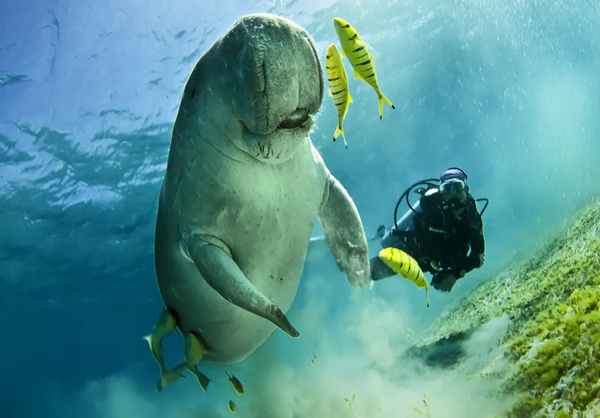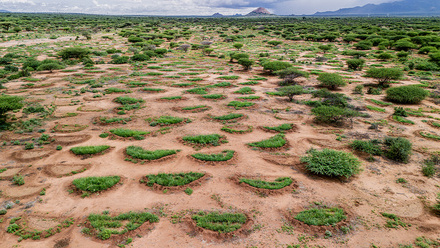Seastainability in Action: Seas4Life Transforms Marine Conservation this World Tourism Day

SEASTAINABILITY IN ACTION
SEAS4LIFE SAFARIS TRANSFORMS MARINE CONSERVATION IN THE WESTERN INDIAN OCEAN
World Tourism Day is an annual international celebration established by the United Nations World Tourism Organisation (UNWTO), which takes place on September 27th. World Tourism Day is dedicated to promoting responsible and sustainable tourism, fostering global understanding, and appreciating the culture and diversity that tourism brings to the world. Seas4Life, the experiential ocean-based safari company, stands at the forefront of a growing movement to redefine how tourism drives sustainable, inclusive and resilient transformation in one of the planet’s richest maritime regions - the Western Indian Ocean (WIO) and these values lie at the heart of Seas4Life’s WIO conservation and education initiatives.
Seas4Life introduces a pioneering concept - seastainability (sea + sustainability) - showcasing the seamless integration of ocean conservation with sustainable development. The seastainability approach dovetails perfectly: by turning ecological challenges into opportunities for investment, education and community prosperity, tourism changes from a passive to an active partner in conservation.
As the world marks World Tourism Day, Seas4Life issues a clarion call: let us reimagine tourism not only as a driver of economic growth, but as a platform for ecological stewardship, social empowerment, and regional resilience. Seastainability is not a distant aspiration, but a commitment to action – with an impact already visible in every reef restored, beach cleaned, and community transformed.
Why Seastainability Matters in the WIO
The marine ecosystems of the WIO are the foundation of economic and cultural prosperity. Fisheries alone secure food for millions, tourism catalyses economic activities, and coastal habitats defend communities from the impacts of climate change by buffering shorelines against storms. Traditional marine conservation efforts in the region have long been subject to the volatility of donor funding. Grants and aid, though invaluable, can be unpredictable.
Julie Church, founder of Seas4Life Safaris and a conservation trailblazer, understood that conservation must be interconnected with economic empowerment, positioning coastal communities as custodians of their future.
Trade-Based Solutions for Ocean Stewardship
Seas4Life generates steady, sustainable income through expertly guided ocean safaris and immersive marine experiences. These attract travellers eager to engage actively, ensuring that their visit directly finances ecological restoration and conservation.
Key conservation initiatives showcased by Seas4Life include:
- Coral Reef Restoration: Supporting regeneration to maintain fisheries and biodiversity.
- Foraging and nesting sea turtles and Seagrass Protection: Safeguarding critical species and vital habitats.
- Community-Led Marine Protected Areas (MPAs): Enabling local stewardship in the management of marine protected areas – the ‘reproductive’ zone.
- Ocean learning through local community ocean excursions and exchanges; beach clean-ups and swimming lessons.
Crucially, all excursions and conservation projects are led by experienced local experts and marine conservationists, offering rich educational guidance and deepening guests’ connection to WIO’s unique ecosystems and the urgent need to protect them.
From Vision to Impact: Empowerment and Innovation
Seas4Life Safaris extends this ethos by aligning sustainable tourism with community engagement, demonstrating that environmental challenges can be reimagined as opportunities.
Central to this model is the Seas4Life Foundation, the not-for-profit arm funded by the safaris, which directly supports impactful marine conservation, education and community-driven initiatives. The foundation amplifies and complements efforts across the WIO, making a tangible difference where it matters most.
Successful outcomes by our partners in the region include:
- Community-Based MPAs: Projects in Kenya (such as Kuruwitu conservation and development with support from Oceans Alive) underpinned increased fish abundance and diversity, providing measurable ecological and social benefits.
- Combating Plastic Pollution: Awareness campaigns, and locally organised beach clean-ups and local organisations like Kwale Plastic Plus are receiving the collected waste and repurposing it. This has seen a marked reduction in marine plastics.
- Empowering Entrepreneurs: Seastainability is being driven both now and in the past with our founder Julie’s creation at Ocean Sole that continues to create new avenues for income and leadership, especially among women and youth, even in her absence. Ownership and stewardship of conservation enterprises are increasingly local, thus anchoring these projects in the communities they serve.
- Revenues from their safaris and donations from also support critical conservation projects such as coral reef restoration, turtle rescue programmes, seagrass protection, and the management of marine protected areas.
Tourism as a Driver of Transformation
Travellers joining Seas4Life Safaris gain more than just breathtaking experiences; they become contributors to a global movement to protect our vulnerable marine ecology. The immersive nature of each safari, guided by local experts, fosters respect and advocacy for the ocean’s future.
The journey towards a truly sustainable and resilient Western Indian Ocean is a collective endeavour. Seas4Life invites all stakeholders – from policymakers, business leaders, tourists to local residents - to join the seastainability movement.
Every individual can make a lasting contribution by:
- Choosing sustainable seafood to support responsible fisheries and safeguard marine biodiversity.
- Reducing plastic usage and joining community-driven coastal clean-ups to combat pollution.
- Supporting eco-friendly tourism and enterprises such as Seas4Life Safaris, where each trip finances conservation directly.
- Advocating for robust policies that protect marine habitats and empower coastal communities.
- Sharing the story of #Seastainabilityoinspire global action and engagement.
The Seas4Life Call to Action
Under Julie Church’s visionary leadership, Seas4Life Safaris proves tourism can be much more than a fleeting experience; it can be the cornerstone of conservation, education and hope for generations to come. By travelling to Watamu, Kenya with Seas4Life, guests can not only experience the wonder of the sea but also get to be involved and learn from experts on conservation like Arocha who champions coral reef restoration or Bahari Hai and Local Ocean Conservation, well known for their turtle research, monitoring and conservation. This symbiotic relationship ensures that visitors understand the importance of seastainability. See full itinerary here.
By integrating sustainable trade with local empowerment, Seas4Life is charting the course for the future of marine conservation in the Western Indian Ocean.
Join us in shaping that future. Discover how to travel with a purpose and contribute to a world where the seas and their people thrive together under the banner of seastainability.
ABOUT SEAS4LIFE
Seas4Life caters to adventurous travellers who seek to immerse themselves in the beauty, serenity and vibrancy of the seas. Whether sailing along Madagascar’s coast, diving into the crystalline waters of Tanzania, its itineraries are personalised to meet your unique preferences and desires. Meaningful escapism is allied with a commitment to sustainability, with a portion of Seas4Life proceeds going into marine conservation efforts.


